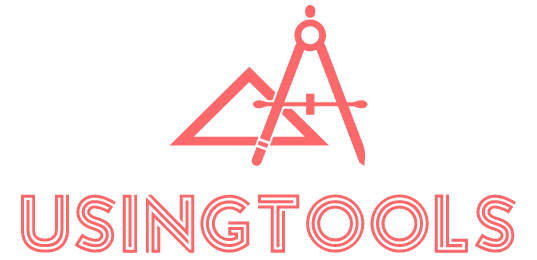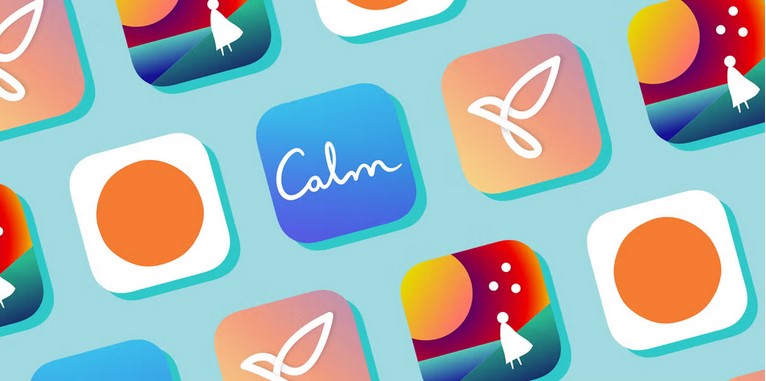Mental health apps are mobile applications designed to support and promote mental well-being. These apps offer a range of features and tools to help individuals manage various mental health conditions, such as anxiety, depression, stress, and more. With the increasing awareness of mental health and the widespread use of smartphones, mental health apps have gained significant popularity in recent years.
The primary purpose of mental health apps is to provide accessible and convenient resources for individuals to track their mental state, learn coping strategies, and engage in activities that can improve their overall mental well-being. These apps offer a variety of features, including mood tracking, mindfulness exercises, cognitive-behavioral therapy (CBT) techniques, relaxation techniques, and educational resources.
One of the key benefits of mental health apps is their accessibility. Unlike traditional therapy, which may be costly or have long waiting lists, mental health apps are generally affordable or even free, making them accessible to a wider range of individuals. Additionally, these apps offer anonymity and privacy, which can be particularly appealing for those who may feel stigmatized or hesitant to seek professional help.
The growing popularity of mental health apps can be attributed to several factors, including the increasing awareness and destigmatization of mental health issues, the convenience and accessibility of mobile technology, and the need for cost-effective and readily available mental health resources. As more people recognize the importance of prioritizing their mental well-being, mental health apps have become a valuable tool in the journey towards better mental health.
Table of Contents
Types of Mental Health Apps
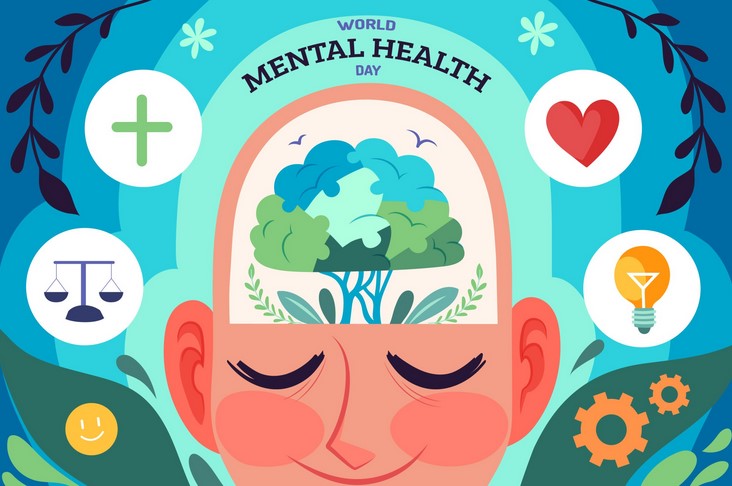
Mental health apps can be categorized into several types based on their primary functions and approaches. Here are some common categories:
Mood Trackers: These apps allow users to monitor and log their emotional states, identify patterns, and gain insights into their mental well-being. Examples include Daylio, Moodtrack, and Moodfit.
Meditation and Mindfulness: These apps provide guided meditations, breathing exercises, and mindfulness practices to help users reduce stress, anxiety, and improve overall mental clarity. Popular options include Calm, Headspace, and Insight Timer.
Cognitive Behavioral Therapy (CBT): CBT apps are designed to help users identify and change negative thought patterns and behaviors. They often include exercises, journaling prompts, and tools based on cognitive-behavioral techniques. Examples are MindShift, Woebot, and Youper.
Peer Support: These apps connect users with others who share similar mental health experiences, fostering a sense of community and support. Apps like 7 Cups, Talklife, and Supportiv offer anonymous peer-to-peer chat rooms and forums.
Mental Health Education and Self-Help: These apps provide educational resources, self-help tools, and coping strategies for managing various mental health conditions. Examples include MindShift, HealthUnlocked, and Sanvello.
Sleep and Relaxation: Apps in this category aim to improve sleep quality and promote relaxation through techniques like guided sleep stories, white noise, and calming music. Examples include Sleepio, Calm, and Pzizz.
Habit Tracking and Goal Setting: These apps help users develop and maintain healthy habits, set goals, and track their progress in areas related to mental well-being, such as exercise, nutrition, and self-care routines. Examples include Fabulous, Way of Life, and Strides.
Many mental health apps incorporate features from multiple categories, offering a comprehensive approach to mental well-being. It’s important to explore and choose apps that align with your specific needs and preferences.
How Mental Health Apps Work
Mental health apps typically employ a combination of features and functionalities to provide support and resources for users. Many apps leverage techniques from cognitive behavioral therapy (CBT), mindfulness practices, and other evidence-based approaches to promote mental well-being.
Features and Functionalities:
- Self-assessment Tools: Apps often include questionnaires or screening tools to help users evaluate their mental health status, identify potential issues, and track their progress over time.
- Psychoeducation: Comprehensive information and educational resources are provided to increase understanding of mental health conditions, symptoms, and coping strategies.
- Mood Tracking: Users can record their daily moods, emotions, and thoughts, enabling the app to detect patterns and provide personalized feedback or recommendations.
- Cognitive Behavioral Techniques: Apps may guide users through CBT exercises, such as cognitive restructuring, behavioral activation, and problem-solving skills training.
- Mindfulness and Meditation: Many apps offer guided meditations, breathing exercises, and mindfulness practices to cultivate present-moment awareness and reduce stress and anxiety.
- Journaling and Expressive Writing: Apps provide secure spaces for users to document their thoughts, feelings, and experiences, which can be therapeutic and promote self-reflection.
- Goal Setting and Task Management: Users can set personal goals, create action plans, and track their progress, fostering a sense of accomplishment and motivation.
Use of AI and Algorithms:
Mental health apps may employ artificial intelligence (AI) and machine learning algorithms to enhance their functionality and personalization. For example:
- Chatbots and Virtual Assistants: Some apps incorporate conversational AI agents that can provide emotional support, offer guidance, and even simulate therapeutic interactions.
- Personalized Recommendations: By analyzing user data and patterns, algorithms can suggest tailored exercises, resources, or interventions based on individual needs and preferences.
- Predictive Analytics: Machine learning models can potentially identify patterns and predict mental health risks or episodes, enabling early intervention and preventive measures.
Data Collection and Personalization:
Mental health apps often collect user data, such as mood ratings, journal entries, and activity logs, to provide personalized experiences and track progress. This data can be used to:
- Adapt Content and Interventions: Apps can adjust the content, exercises, and interventions based on the user’s specific needs, goals, and progress.
- Identify Triggers and Patterns: By analyzing user data, apps may be able to identify potential triggers, patterns, or early warning signs of mental health challenges.
- Provide Tailored Feedback: Apps can offer personalized feedback, encouragement, and insights based on the user’s unique data and experiences.
It’s important to note that while mental health apps can be valuable tools, they should not be considered a substitute for professional mental health treatment when needed. Many apps are designed to complement and support traditional therapy or counseling.
Benefits of Using Mental Health Apps
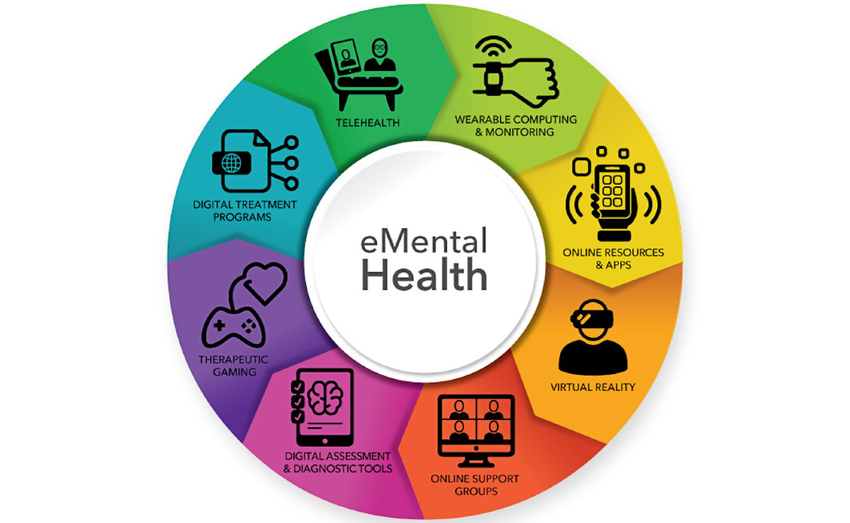
Mental health apps offer numerous benefits that make them an appealing option for individuals seeking support for their mental well-being. One of the primary advantages is convenience. These apps are readily available on smartphones and other devices, allowing users to access them anytime and anywhere. This flexibility eliminates the need for scheduled appointments or traveling to a specific location, making it easier to incorporate mental health support into daily life.
Another significant benefit is accessibility. Mental health apps can reach a wider audience, including those in remote or underserved areas where access to traditional mental health services may be limited. Additionally, individuals who experience barriers to seeking in-person support, such as those with mobility issues or social anxiety, can find mental health apps to be a more accessible alternative.
Anonymity is another attractive feature of mental health apps. Many individuals may feel hesitant or uncomfortable discussing their mental health concerns in person due to stigma or privacy concerns. Mental health apps provide a discreet and anonymous platform where users can explore resources, track their symptoms, and engage with self-help tools without fear of judgment or identification.
Cost-effectiveness is a significant advantage of mental health apps. Traditional mental health services can be expensive, especially for those without adequate insurance coverage or financial resources. Many mental health apps are available for free or at a relatively low cost, making them an affordable option for individuals who might otherwise be unable to access professional support.
Mental health apps also offer tailored support. These apps often incorporate personalized features, such as mood tracking, journaling, and customizable goal-setting, which allow users to tailor the app’s functionality to their specific needs and preferences. Additionally, some apps use artificial intelligence or machine learning algorithms to provide personalized recommendations and interventions based on the user’s inputs and data.
Potential Risks and Limitations
Mental health apps can be a valuable tool, but they also come with potential risks and limitations that users should be aware of. One major concern is privacy. Many apps collect personal data, including sensitive mental health information, which could potentially be mishandled, hacked, or sold to third parties. Users should carefully review the privacy policies and data practices of any app they use.
Another limitation is the lack of human interaction. While apps can provide valuable resources and tools, they cannot replicate the nuanced understanding and personalized support of a trained mental health professional. Apps should be viewed as a supplement to traditional therapy, not a replacement.
There is also a risk of over-reliance on mental health apps. While they can be helpful, they should not be the sole source of support for individuals dealing with serious mental health issues. Over-reliance on apps could lead to a delay in seeking professional help when it is needed.
Furthermore, the mental health app industry is largely unregulated, meaning that the quality and effectiveness of apps can vary greatly. Some apps may be based on questionable or outdated information, or may make unsubstantiated claims about their benefits. Users should be cautious and seek guidance from mental health professionals when selecting apps.
Choosing the Right Mental Health App
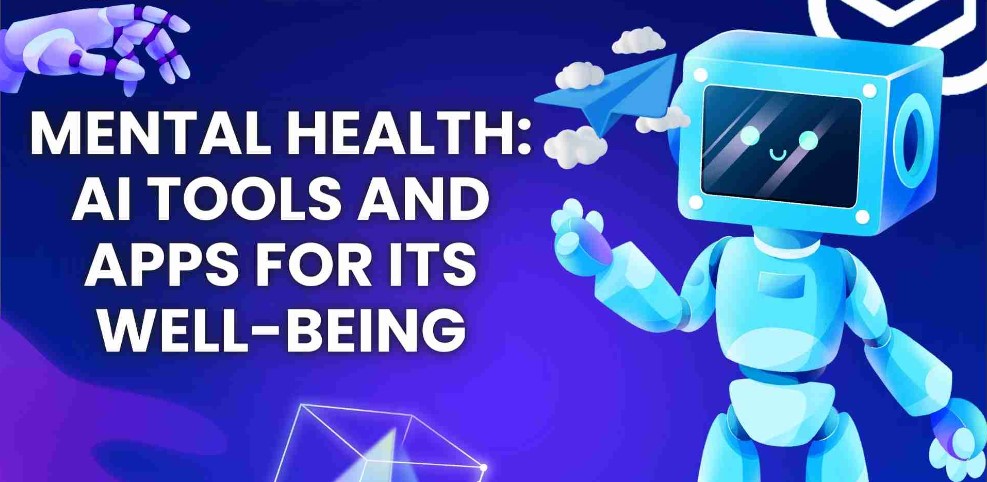
When it comes to selecting a mental health app, it’s crucial to find one that aligns with your specific needs and preferences. With numerous options available, it can be overwhelming to determine which app is the right fit. Here are some key factors to consider:
Identify Your Needs: Before exploring mental health apps, take some time to reflect on your goals and the areas you wish to address. Are you seeking help with anxiety management, mood tracking, mindfulness practices, or perhaps a combination of these? Clearly defining your needs will help you narrow down your options and find an app tailored to your specific requirements.
Read Reviews and Ratings: User reviews and ratings can provide valuable insights into the real-world experiences of others who have tried the app. Look for apps with a significant number of positive reviews, as this can indicate their effectiveness and user-friendliness. However, keep in mind that individual experiences may vary, and it’s essential to approach reviews with a critical eye.
Evidence-Based Approach: Prioritize mental health apps that are based on established psychological principles and therapeutic techniques. Apps developed in collaboration with mental health professionals or backed by research are more likely to be effective and reliable. Look for apps that provide references or information about their theoretical foundations.
Data Privacy and Security: Mental health apps often deal with sensitive personal information, so it’s crucial to consider data privacy and security measures. Read the app’s privacy policy carefully and ensure that your data is protected and handled responsibly. Look for apps that use encryption and follow industry standards for data protection.
Cost and Accessibility: While many mental health apps offer free basic versions, some may require a subscription or in-app purchases for additional features. Evaluate your budget and determine whether the app’s pricing aligns with your financial capabilities. Additionally, consider the app’s accessibility features, such as language options or compatibility with assistive technologies, to ensure it meets your needs.
Remember, choosing the right mental health app is a personal decision, and what works for one individual may not be suitable for another. It’s always advisable to consult with a mental health professional, especially if you are dealing with severe or complex mental health issues. They can provide guidance and ensure that the app you choose complements your overall treatment plan effectively.
Integrating Apps with Professional Treatment
Mental health apps can be a valuable supplementary tool when used in conjunction with professional treatment, but they should not be considered a replacement for therapy or medical care. It’s essential to coordinate the use of mental health apps with your healthcare providers to ensure they align with your overall treatment plan and goals.
While apps can provide useful tools for tracking symptoms, practicing coping strategies, and accessing educational resources, they cannot replicate the personalized guidance and support offered by a trained mental health professional. Apps should be viewed as an adjunct to traditional therapy, not a substitute.
When integrating mental health apps into your treatment, it’s crucial to communicate openly with your therapist or healthcare provider. Discuss how the app aligns with your treatment objectives and how it can complement the work you’re doing in therapy sessions. Your provider can offer guidance on how to effectively utilize the app and ensure it aligns with evidence-based practices.
Additionally, some mental health apps allow you to share data or progress reports with your provider, facilitating better coordination and personalized care. This collaboration can help your provider gain insights into your daily experiences, identify patterns, and make informed adjustments to your treatment plan as needed.
It’s important to remember that mental health apps are not a one-size-fits-all solution, and their effectiveness may vary depending on individual needs and circumstances. Regular check-ins with your provider can help evaluate the app’s usefulness and determine if any adjustments or alternative approaches are necessary.
Ultimately, the integration of mental health apps with professional treatment should be a collaborative process, with open communication and a shared understanding of how the app fits into your overall mental health journey.
Mental Health App Regulations and Standards
As mental health apps continue to gain popularity, there is a growing need for regulations and standards to ensure their safety, effectiveness, and ethical use. Currently, the oversight and guidelines for mental health apps vary across different regions and jurisdictions.
In the United States, the Food and Drug Administration (FDA) is responsible for regulating mobile medical apps that are considered medical devices. However, many mental health apps fall outside this category and are not subject to the same level of scrutiny. The American Psychiatric Association (APA) has developed a set of guidelines and recommendations for the evaluation and use of mental health apps, emphasizing the importance of privacy, security, and evidence-based practices.
In the European Union, the General Data Protection Regulation (GDPR) has set strict rules for data privacy and protection, which applies to mental health apps that collect and process personal data. Additionally, the European Commission has launched initiatives to promote the development of high-quality and trustworthy digital health solutions, including mental health apps.
Globally, organizations like the World Health Organization (WHO) and the International Medical Informatics Association (IMIA) are working towards establishing international standards and best practices for mental health apps. These efforts aim to ensure that apps are safe, effective, and comply with ethical principles, such as informed consent, data protection, and transparency.
Several certification programs have emerged to evaluate and endorse mental health apps that meet certain criteria. For example, the APA has developed an app evaluation model, and organizations like the NHS Apps Library in the UK and the Mind App in Australia provide curated lists of recommended mental health apps.
Despite these efforts, the regulation and standardization of mental health apps remain a challenge. The rapid pace of technological advancements, the diversity of app offerings, and the lack of comprehensive research and evidence make it difficult to establish universal guidelines. Ongoing collaboration between app developers, mental health professionals, regulatory bodies, and consumer advocacy groups is crucial to ensure the responsible and ethical use of mental health apps.
The Future of Mental Health Apps
The future of mental health apps looks promising, with several emerging trends and advancements on the horizon. One notable area of development is the integration of artificial intelligence (AI) and machine learning algorithms. These technologies can analyze user data, identify patterns, and provide personalized recommendations or interventions tailored to individual needs.
AI-powered chatbots and virtual assistants are also being explored as a means to provide on-demand support and guidance. These conversational agents can simulate human-like interactions, offering emotional support, coping strategies, and even crisis intervention when needed.
Another exciting development is the integration of mental health apps with wearable devices and sensors. These devices can track various physiological signals, such as heart rate, sleep patterns, and activity levels, which can provide valuable insights into an individual’s mental and emotional state. By combining this data with self-reported information from the app, a more comprehensive understanding of an individual’s well-being can be achieved.
Furthermore, the potential impact of mental health apps is significant. As these apps become more advanced and accessible, they could play a crucial role in democratizing mental health care and reaching underserved populations. They can also complement traditional therapy by providing ongoing support and tools for self-management between sessions.
However, it’s important to note that mental health apps should not be viewed as a complete replacement for professional treatment. Rather, they should be seen as a supplementary tool to be used in conjunction with guidance from qualified mental health professionals.
Overall, the future of mental health apps holds great promise in improving access to mental health resources, providing personalized support, and empowering individuals to take an active role in managing their well-being.
Recommended Mental Health Apps
Calm is a popular mindfulness and meditation app that offers guided meditations, sleep stories, breathing exercises, and relaxing music. It’s designed to help users reduce stress and anxiety, improve sleep quality, and cultivate a sense of calm and well-being. Calm is suitable for both beginners and experienced meditators, with programs tailored to different goals and preferences.
Headspace is another highly-rated meditation app that provides guided meditations, mindfulness exercises, and sleep content. It offers a structured program for beginners to learn the basics of meditation, as well as more advanced courses on topics like stress management, focus, and self-esteem. Headspace is known for its engaging animations and the soothing voice of its co-founder, Andy Puddicombe.
Talkspace is an online therapy platform that connects users with licensed therapists for individual counseling sessions via text, audio, or video messaging. It offers a convenient and flexible way to access mental health support from the comfort of your own home or on-the-go. Talkspace therapists specialize in various areas, such as anxiety, depression, relationships, and more.
Sanvello is a comprehensive mental health app that combines cognitive-behavioral therapy (CBT) techniques, mindfulness practices, and peer support. It offers daily mood tracking, coping tools, and personalized progress plans to help users manage conditions like stress, anxiety, and depression. Sanvello also provides a community forum where users can connect with others on similar journeys.
Happify is a science-based app that uses evidence-based techniques from positive psychology, mindfulness, and cognitive-behavioral therapy to help users overcome negative thought patterns, reduce stress, and build resilience. It offers a variety of activities, games, and tracks designed to improve overall well-being and emotional health.
Conclusion
Mental health apps offer a convenient and accessible way to support your well-being. From mood tracking and mindfulness exercises to virtual therapy and peer support, these tools provide a range of resources at your fingertips. However, it’s crucial to approach them mindfully and not rely solely on apps as a replacement for professional care when needed.
Remember, mental health is a complex and deeply personal journey. While apps can be valuable companions, they should complement, not substitute, guidance from qualified mental health professionals. Maintain open communication with your healthcare providers and use apps as supplementary tools in your overall care plan.
Ultimately, the key is finding the right balance and using mental health apps in a way that empowers and enriches your life. Embrace them as supportive resources, but don’t hesitate to seek additional help when necessary. Your mental well-being is a priority, and with the right combination of tools and support, you can navigate the path to a healthier, more fulfilling life.
